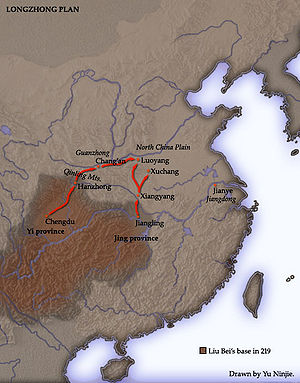This article needs additional citations for verification. (April 2019) |
Year 234 (CCXXXIV) was a common year starting on Wednesday (link will display the full calendar) of the Julian calendar. At the time, it was known as the Year of the Consulship of Pupienus and Sulla (or, less frequently, year 987 Ab urbe condita). The denomination 234 for this year has been used since the early medieval period, when the Anno Domini calendar era became the prevalent method in Europe for naming years.
| Millennium: | 1st millennium |
|---|---|
| Centuries: | |
| Decades: | |
| Years: |
| Gregorian calendar | 234 CCXXXIV |
| Ab urbe condita | 987 |
| Assyrian calendar | 4984 |
| Balinese saka calendar | 155–156 |
| Bengali calendar | −359 |
| Berber calendar | 1184 |
| Buddhist calendar | 778 |
| Burmese calendar | −404 |
| Byzantine calendar | 5742–5743 |
| Chinese calendar | 癸丑年 (Water Ox) 2931 or 2724 — to — 甲寅年 (Wood Tiger) 2932 or 2725 |
| Coptic calendar | −50 – −49 |
| Discordian calendar | 1400 |
| Ethiopian calendar | 226–227 |
| Hebrew calendar | 3994–3995 |
| Hindu calendars | |
| - Vikram Samvat | 290–291 |
| - Shaka Samvat | 155–156 |
| - Kali Yuga | 3334–3335 |
| Holocene calendar | 10234 |
| Iranian calendar | 388 BP – 387 BP |
| Islamic calendar | 400 BH – 399 BH |
| Javanese calendar | 112–113 |
| Julian calendar | 234 CCXXXIV |
| Korean calendar | 2567 |
| Minguo calendar | 1678 before ROC 民前1678年 |
| Nanakshahi calendar | −1234 |
| Seleucid era | 545/546 AG |
| Thai solar calendar | 776–777 |
| Tibetan calendar | 阴水牛年 (female Water-Ox) 360 or −21 or −793 — to — 阳木虎年 (male Wood-Tiger) 361 or −20 or −792 |

Events
editBy place
editRoman Empire
edit- Emperor Alexander Severus and his mother Julia Mamaea move to Moguntiacum (modern Mainz), the capital of Germania Superior. His generals have planned a military offensive and built a bridge across the Rhine. Alexander prefers to negotiate for peace by buying off the Alemanni. This policy outrages the Roman legions and he loses the trust of the troops.
China
edit- Battle of Wuzhang Plains between the Chinese states of Shu Han and Cao Wei: The army of Shu Han retreats, following an inconclusive result.
Korea
edit- Saban becomes king of the Korean kingdom of Baekje. He is succeeded by Goi of Baekje later in the same year.[1]
Births
edit- Porphyry, Phoenician Neoplatonic philosopher (d. c. 305)
- Wang Rong, Chinese general and politician (d. 305)
Deaths
edit- April 21 – Xian of Han, Chinese emperor of the Han Dynasty (b. 181)
- Li Miao (or Hannan), Chinese official and politician
- Li Yan (or Li Ping), Chinese general and politician
- Liu Yan (or Weishuo), Chinese general and politician
- Liu Ye (or Ziyang), Chinese court adviser and politician
- Pan Zhang (or Wengui), Chinese general and politician
- Sun Huan (or Jiming), Chinese nobleman and general
- Wei Yan (or Wenchang), Chinese general and politician
- Xiahou Hui (or Yuanrong), Chinese noblewoman (b. 211)
- Zhuge Liang, Chinese statesman and strategist (b. 181)
References
edit- ^ "List of Rulers of Korea". www.metmuseum.org. Retrieved April 20, 2019.